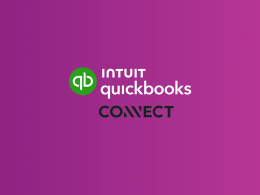The pandemic has brought out the best in many B2B service providers looking to help their business customers that struggle amid market volatility. Yet many of those service providers faced immense challenges themselves.
For many, it quickly became clear that in order to help the business ecosystem, these service providers must first help themselves. That was the concept for CloudBusiness, which operates business management tool Synder. Due to the fact that many of its business customers were struggling to maintain their subscriptions to Synder, CloudBusiness had to explore how both help those companies, and retain them as customers.
“It was a hard time for everyone, but at the same time it was a good call for us to act,” said Michael Astreiko, CEO of CloudBusiness, in an interview with PYMNTS.
The result was a new program to help migrate businesses from an offline environment to an online one. It involved a lot of educational initiatives, creative business model thinking, and for some companies, an entirely new approach to bookkeeping and financial management. Yet as more organizations embrace the eCommerce shift, the growing pains of these changes will ease into preparedness for the future.
Business Model Creativity
The rate of permanent business closures continues to rise, and Main Street has been hit particularly hard. Business model flexibility has proven to be essential to the survival of companies, and migrating sales operations online can be a savior for traditionally brick-and-mortar retailers.
Yet there are some businesses models that aren’t as easily translated to the digital realm. That doesn’t mean it’s impossible to do, however.
Astreiko pointed to one Synder client, hair salon Jade, a business “on the brink of closure due to the COVID-19 outbreak,” he said, adding that the company was about to cancel its subscription. Synder’s educational resources helped Jade understand the potential for a digital sales model and allowed the business to launch online hair care tutorials and services via Zoom.
By enabling businesses that might have otherwise assumed they weren’t mean for an eCommerce model, CloudBusiness was able to both retain customers and help keep those businesses afloat.
A New Cash Flow Strategy
Launching a new business model that can support online sales is one thing. But being able to accept online payments — and then navigating the way such payments change bookkeeping and financial management strategies — is another.
“When you start to accept payments online, you need to understand that cash flow management works quite differently compared to a regular, offline way,” said Astreiko.
That’s particularly true when companies begin using third-party marketplace platforms like Shopify, eBay and Amazon to launch their eCommerce strategies. For instance, Astreiko explained, while Shopify takes a fee for every transaction recorded, daily summaries reported to a seller’s bank account don’t take that fee into account.
“You cannot record only the net amount received,” he said. “You have to reflect both gross amounts and fees in your accounting. Otherwise, your books will be unbalanced and your P&L [profits and losses] report will be wrong.”
This can be confusing and for many businesses as their accounting strategies are not optimized for an eCommerce ecosystem.
The Integration Value
To help businesses of all types prepare for this shift, Synder recently announced integrations with Shopify, eBay and Amazon, which can automate the process of recording financials in a manner that is both compliant and appropriate for an eCommerce model.
While these platforms are quickly developing their own integrations, Astreiko said they don’t always support the needs of all types of businesses and can target only a small fraction of clients.
At the same time, the demand for such integrations continues to rise. Today, this is motivated by the need for businesses that may be shifting business models and embracing the digital sales ecosystem to adjust their accounting and financial management strategies to survive. But in the long term, this demand is driven by the growing need for automated accounting as finance professionals migrate away from tedious, manual tasks toward more value-added services.
Artificial intelligence (AI) is an important component of this automation capability, said Astreiko, and as accounting platforms expand their functionality, integration will continue to be an important part of elevating value for business users.
“Accounting platforms are now a multifunctional business tool that needs to cover all critical aspects of any business,” he said. “This approach enables many software companies from different spheres — like CRM systems, inventory tracking, etc. — to collaborate in one common ecosystem.”
Originally published at https://www.pymnts.com/news/b2b-payments/2020/synder-cloudbusiness-ecommerce-business-model-bookkeeping/ on September 21, 2020.






